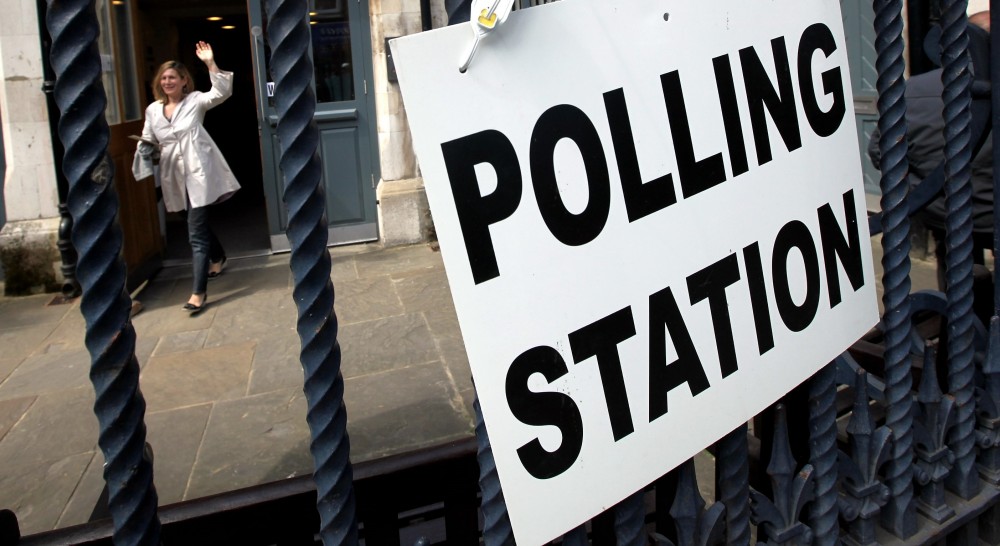Worst fears realised
As UNITElive reported last year, the government rushed through the introduction of a new voter registration system that requires voters to individually register themselves.
This replaced an old system in which heads of households could register each member in groups, a system particularly popular on university campuses, where universities block registered young people living in student halls.
The full introduction of the new system, called Individual Electoral Registration (IER), was supposed to be phased in by December of next year, so that voters had plenty of time to get back on the register if councils had dropped them because they could not match their names and addresses to tax or benefits records.
But in July of last year, one Tory minister, John Penrose, tabled an amendment that would speed the process up by an entire year.
The Labour party and groups such as the Electoral Reform Society and Hope Not Hate, as well as Unite, lambasted the move, highlighting an analysis that found that potentially 1.9m voters could disappear from the electoral register overnight. The majority of these would be students and those living in deprived, inner city areas.
For example, the London borough of Hackney, where the majority live in rented accommodation, would stand to lose nearly a quarter of registered voters. The city of Glasgow would lose 13 per cent, while Birmingham would lose more than 7 per cent.
At the time, Conservative ministers dismissed worries over the glutting of the electoral register, arguing that the electoral rolls were filled with â€ghost voters’ who did not belong on the register in the first place.
Missing voters
But now, the Labour party has revealed statistics showing that campaign groups’ concerns have actually come to pass –the latest estimates show that 800,000 fewer people were registered in December 2015 than the year before.
The drop was particularly pronounced in areas with dense student populations – in Cantebury, for example, 13 per cent of registered voters were wiped off from the register, and in Cambridge and Dundee West, both experienced an 11 per cent fall.
In response to the latest figures, shadow minister for electoral registration Gloria De Piero wrote to John Penrose, who originally tabled the amendment to rush through IER, expressing her concerns about student disenfranchisement.
“The transition to individual electoral registration (IER) has resulted in a significant fall in the number of people on the electoral register in areas with a university,” she said.
“As you will know, IER prevents universities from block registering all their students in halls of residence, but measures should be taken to ensure that it is as easy as possible for individual students to register.
“The University of Sheffield has seen outstanding results by integrating voter registration into the enrolment process … I write to you today to call for official guidance to be issued to every vice-chancellor in the country about how they can adopt the Sheffield model in their universities for next year’s enrolment.”
Registration drive
This week is National Voter Registration week, coordinated by campaign group Bite the Ballot. Last year, the registration drive was the most successful one in history. The campaign registered more than 400,000 people, with 166,000 registering on the last day of the week alone.
While Bite the Ballot hopes to reverse the steep drop in people registered to vote, Labour has pointed out that no matter how many voters are registered this year, constituency boundary changes will be based on the incomplete December 2015 register.
This means that constituencies in future elections will favour voters in areas more likely to vote Tory, such as rural parts of the UK, which would give the Conservative party a clear advantage in future elections.
Time for action
Unite political director Jennie Formby criticised the rapid introduction of IER.
“The government said last year that we have nothing to fear about their rushed through implementation of Individual Electoral Registration,” she noted.
“But our worst fears have been confirmed – nearly a million people, mostly young voters, have fallen off the register. Constituency boundaries will now be based on an incomplete register and swing the likelihood of the Conservatives winning future elections for years to come.
“Worst of all, those who’ve been effectively disenfranchised are those who need a political voice the most – young people, the poor and vulnerable, ethnic minorities, those in rented accommodation and the disabled,” Formby added.
“The government has failed its citizens by restricting access to the vote – now it’s up to citizens themselves to turn things around,” she went on to say. “We at Unite encourage everyone to get involved in the National Voter Registration Drive this week. If you are already registered yourself, get the word out and help others register – tell your friends, family and work colleagues. Now our only hope for a truly representative democracy is direct action.”
Find out more about how you can get involved in Bite the Ballot’s voter registration drive here.
Also be aware that Individual Electoral Registration has also introduced online registration, so you can register to vote in a matter of minutes here. All you’ll need is your National Insurance Number, or a British passport if you’re a UK citizen living abroad.
 Like
Like Follow
Follow

